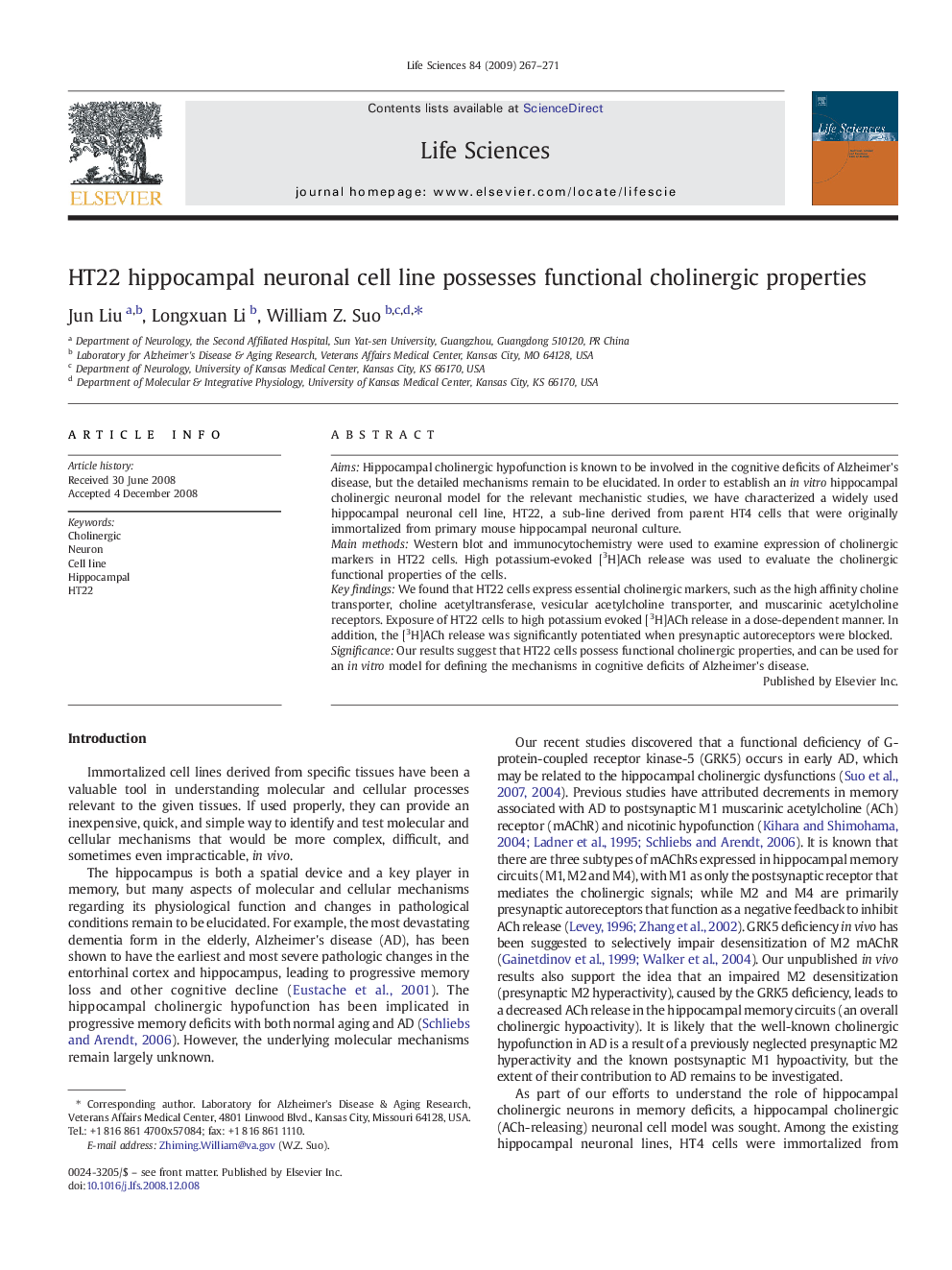| Article ID | Journal | Published Year | Pages | File Type |
|---|---|---|---|---|
| 2552435 | Life Sciences | 2009 | 5 Pages |
AimsHippocampal cholinergic hypofunction is known to be involved in the cognitive deficits of Alzheimer's disease, but the detailed mechanisms remain to be elucidated. In order to establish an in vitro hippocampal cholinergic neuronal model for the relevant mechanistic studies, we have characterized a widely used hippocampal neuronal cell line, HT22, a sub-line derived from parent HT4 cells that were originally immortalized from primary mouse hippocampal neuronal culture.Main methodsWestern blot and immunocytochemistry were used to examine expression of cholinergic markers in HT22 cells. High potassium-evoked [3H]ACh release was used to evaluate the cholinergic functional properties of the cells.Key findingsWe found that HT22 cells express essential cholinergic markers, such as the high affinity choline transporter, choline acetyltransferase, vesicular acetylcholine transporter, and muscarinic acetylcholine receptors. Exposure of HT22 cells to high potassium evoked [3H]ACh release in a dose-dependent manner. In addition, the [3H]ACh release was significantly potentiated when presynaptic autoreceptors were blocked.SignificanceOur results suggest that HT22 cells possess functional cholinergic properties, and can be used for an in vitro model for defining the mechanisms in cognitive deficits of Alzheimer's disease.
